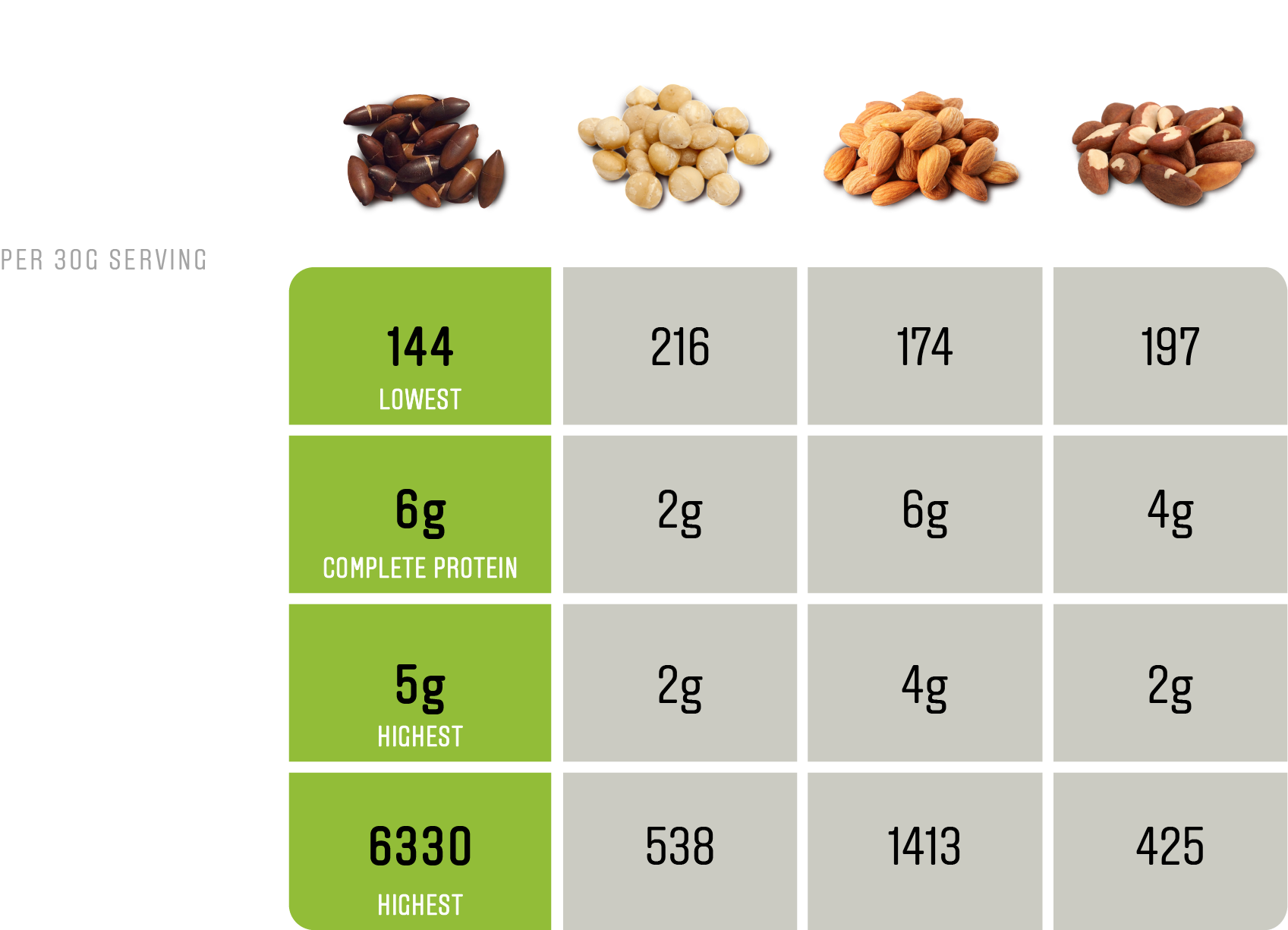You don't have any items in your cart.
Check out our products
Barùkas nuts grow on Baruzerio trees in the wild in Brazil. There are no chemicals, pesticides, or artificial irrigation. While there is no organic certification (it's a very large area that's 3x the size of Texas), we consider them beyond organic since they are wild harvested.




















